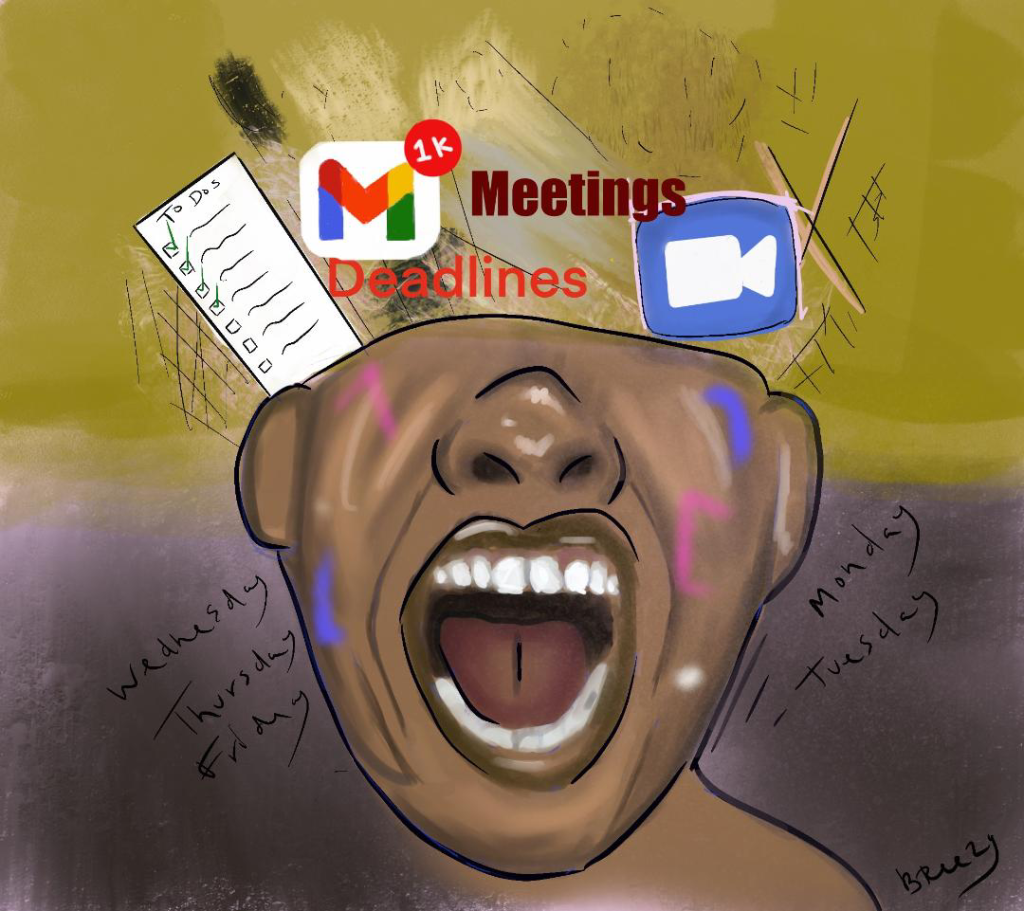What’s a great company? Numerous people have said a winning strategy mixes the correct abilities with the proper goal and circumstances. However, the study now suggests that you cannot perceive what is most important on a CV or resume.
These ‘hidden abilities’ – attributes like temperament, how we interact, and our aptitude to understand, compromise, and manage – are approximately 85% of the business’s success.
Specific non-technical qualifications will not be as evident on paperwork as a diploma and professional experience but are the basis over something as crucial: good mental health at work.
Consider your daily contact with workers and your everyday job routine and digital health. The following questions are then given to you:
- Can you notice and comprehend the foundation of feelings in yourself and other people?
- Can you control and use your emotions for things such as analyzing and solving problems?
- Can you regulate your feelings, control your personal and/or others’ emotions?
You likely have higher education and high mental health on the job when you replied “Yes” to all of the following. Nevertheless, healthy mental health does not mean managing emotions or putting staffers on the front.
Emotionally healthy individuals are more genuine and honest, perhaps because their emotions and others are so sensitive. Around the same time, they can also check their sentiments, make educated choices, be highly adaptable under stress, and show more empathy.
These top features have not been discovered by coincidence in several successful management programs today.
Set up the work plan in minutes, contact the staff, and easily handle changes in the schedule.
How Well Your Management Abilities Influence Mental Health At Work?
For a relatively similar reason, many bosses are there: they take the initiative. However, every manager has a comparable skills level in highly qualified areas, comprising directors and company management. You will become a great performer if you reach the top. However, to break free from the package deal, efficient leadership has to have something else.
Researchers found that the top management systems are bold and prepared to take the chance, yet conscientious over how they communicate with colleagues in a survey of over 5,000 managers across several sectors.
Interestingly, her Harvard study has also shown that introverts are more likely to exceed standards of corporate governance than extroverts.
Why is this amazing? The typical CEO of the Board is frequently described in the mainstream media as self-centered and outside the reach of his staff. Others create personality cultivation. The cutthroat CEO may learn a lot from his quiet, collected companions.
As the two studies show, the best management is not entirely focused on universal appreciation or intimidation. They are instead developing a better awareness of the points of view of their personnel and stakeholders. They understand and engage with the needs and desires of people calmly under pressure to move choices ahead.
One strategy is to understand C-suite management traits. These emotionally intelligent features, though, are not confined to CEOs only. Good mental health at work is also the most successful day-to-day management. As effective Bosses, successful leaders are steady and able to adequately express their urges, generating environmentally less stress for employees who promote self-employment and technical skill.
How compassionate your colleagues and clients see you as a leader or a manager has a significant effect on your management success. Here are the reasons why empathy and other work-related mental health abilities are critical for effective management:
You can be a better boss if you have vital mental health at work.
Consider the last time you were confronted with a tough choice and only had a few seconds or minutes to consider your possibilities. What strategy did you employ to deal with the situation? Were you ready for anything that came your way? Did you maintain your composure under duress?

It’s easy to get consumed by work responsibilities allowing mental health wellness to lose priority. Maintaining a proper work-life and mental wellness is essential. Image by Breanna Brim
How To Be Mentally Stable?
To be an emotionally and mentally stable boss entails determining the origin of your anxiety and mentally directing yourself via the procedures required to make an educated judgment. That doesn’t imply you didn’t convey your disappointment. It signifies you’ve figured out how to control it.
There are plenty of mental health support groups that can help you in your hard times.
10 Facebook Groups For Grief and Loss Support
A great manager maintains his or her composure and authority. Maintaining your emotions under control reduces not only your own and also your colleagues’ stress. Your attitude at work can even influence the surrounding health of your coworkers.
Why Your Bad Boss Could Literally Be Killing You
People who work for supervisors with weak governance or leadership abilities are more likely to die from heart diseases, hypertension, sleep issues, anxiety, and obesity.
In today’s workforce, good mental health at work goes hand-in-hand with two other highly sought-after managerial qualities: sincerity and accountability. A staggering 97% of youngsters consider criticism is vital, yet many hope they could have more open talks with their bosses. Half of the respondents would instead do “meaningful work” than earn a greater wage. At the same time, 62% would like to find a company that has a beneficial impact.
On a side note, if you are looking for saved jobs on LinkedIn, check out Resumecroc for details.
Good Mental Health Vs Good Management
Empathy, the cornerstone of good mental health at work, is essential for excellent leadership and the financial success of your company. According to the Global Empathy Index from 2015, the top ten companies made 50% higher income than the bottom ten. What is the reason for this? The most suitable approach to understand another person’s perspective is to listen with empathy. Fixing customers’ problems begins with a basic grasp of another person’s demands and how they affect their daily operations.
Although in about 20% of the cases, customer care professionals inquire for just a name, when 70 percent of a customer’s shopping experience is determined by how they are handled, it is essential to maintain that customers are not just heard but also acknowledged and respected.
Emphasizing good mental health at work and practicing interpersonal attention on your colleagues will undoubtedly “spill over” into other things you do and in time attract your customers’ attention if you want to acquire an edge over your competitors.
Conclusion
There would be difficult days at work or circumstances beyond your power, regardless of how good your management abilities are. As a result, good mental health at work is essential for successful management.
One can build a better atmosphere for your workers, a steeper learning curve for your clients, and nurture good management habits in your organization by recognizing and controlling feelings with yourself and everyone else. When stress, tension, or irritation arise in the future, channel them and put them to good use.
Author Bio:
Ellie Cross is a Content Manager at EssaysUk who has been assisting students for a long time. I have been part of Essays UK since its inception and have seen all the ups and downs it has faced in all those years. I manage a growing team of great writers and content marketers who are contributing to a great extent to help students with their academics.


